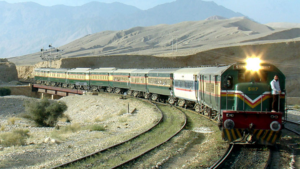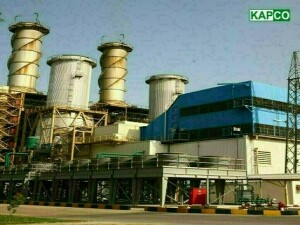It’s still hard to figure out which is worse. Pretty and/or entitled brats with fancy connections landing high-paying news anchor/talk show host slots on TV channels, or news anchors/talk show hosts with high-paying jobs on TV channels masquerading as journalists?
Regardless, their lack of professionalism – most of them, anyway – has been laid bare by the protests of families of missing persons from Balochistan, mostly women and students, in Islamabad. Because if you begin your line of questioning by asking them if they condemn BLA, BNA, or any of the many terror outfits operating out of their province, you only ensure two things.
One, you turn the spotlight away from the desperation that drove them to walk all the way from Turbat to Islamabad, set up camp outside the capital press club in the thick of winter, and beg anybody who’d listen – president, prime minister, supreme court? – to make sure that the law of the land (remember the constitution?) applies to their loved ones; their fathers and brothers who were either “forcefully disappeared” or summarily executed, allegedly, by the state.
And two, when you interrupt their statements, repeatedly, and force them to comment on terrorists and terrorism instead, you not only make your audience’s blood boil, but you also make sure that these women and children go back home to become easy prey for the same frustrated terrorists that you force them to condemn on live TV.
You also betray complete ignorance about conflict journalism.
Any journalist who cut his teeth in in-the-field journalism in the Middle East in the early part of the new century – or the three decades before that for that matter – would be influenced by what foreign correspondents in that part of the world once called the Robert Fisk School. It was that iconic foreign correspondent (for The Independent) that courted controversy by claiming that journalists, writers of history’s first draft, must be biased and take sides, in favour of the oppressed, when it comes to conflicts and wars.
He also provided the only credible definition of a journalist – he said correspondent, but same difference – as one who keeps checks on centres of power in times of conflicts – he said wars but, again, same difference.
He chose to resign from the Times of London rather than scrap his story about Iranian soldiers gassed by Saddam’s army, with chemical weapons provided by the US, when he got an angry call from his editor. Much later, he was the only front-line correspondent who reminded the world’s greatest powers, as they tumbled into the so-called war on terror, that nobody even bothered to wonder what got a bunch of Arab youth angry enough to hijack and fly airplanes into the twin towers.
But most of his long career revolved around Israel’s illegal occupation of Palestinian lands and the many, many war crimes and human rights violations committed by the Zionist state. And he refused to call the brutal occupation a simple “dispute”, Israel’s wall around Gaza a “fence”, and Palestinian freedom fighters “terrorists” simply because that’s what Rupert Murdoch’s media legions, and their best friends in Capitol Hill and White Hall, defined as the gold standard of international journalism.
That would “tone down the facts”, he said, and that’s precisely what journalists are not supposed to do. 50-50 coverage, “exactly what is wrong with American journalism”, might be good for covering a football match, but not when the might of a powerful state is being used to crush innocent people inside it, or inside other states.
That’s not something that can be taught, only learnt. He once quoted a senior reporter from the Evening Chronicle – where he started his career long, long ago, in Blyth, Northumberland – Jim Harland, “a Sean Connery lookalike” in an August, 2001 column – reproduced in his famous book The Age of The Warrior – as saying, “You learn journalism on the job, not listening to that bunch of wankers”, referring to journalism/media schools.
It’s been a while since I had the luxury of on-field work, putting questions to centres of power, but even with a weekly column to fume and vent, I know that journalists can make a difference, but only if they try. The Baloch have some of the most legitimate grievances of the many wronged people in this Islamic republic.
Why else would women who’ve grown tired of waiting for their men take their children and march miles and miles to the capital only to be heard? How could it be that the president, prime minister and the Islamabad High Court (IHC) “condemn” cowardly police brutality against those helpless and powerless women and children, yet the police goes on doing what it does best, which is to hound and hurt the innocent?
And why do leading “journalists” put on their makeup and blow dry their hair to step in front of the camera and then ask the brave women who led the march to comment on BLA and BNA? When is one of them going to have the courage, if not the sense of duty, to put the mike to the powerful and ask the most basic questions?
Why, for example, are these women braving tear gas, water cannons and baton charges? What drove them to this point?
The answers will follow as if the floodgates themselves were forced open.
Copyright Business Recorder, 2023
The writer can be reached at jafry.shahab@gmail.com























Comments
Comments are closed.